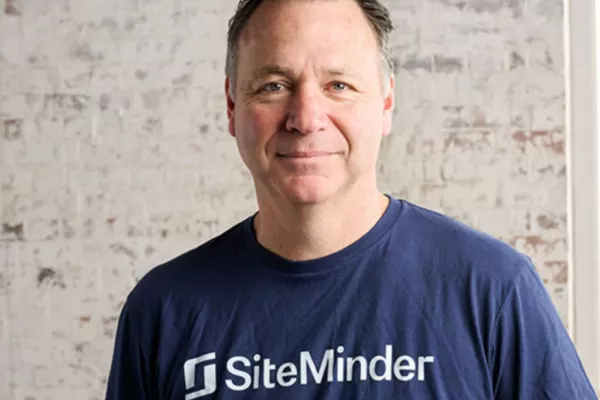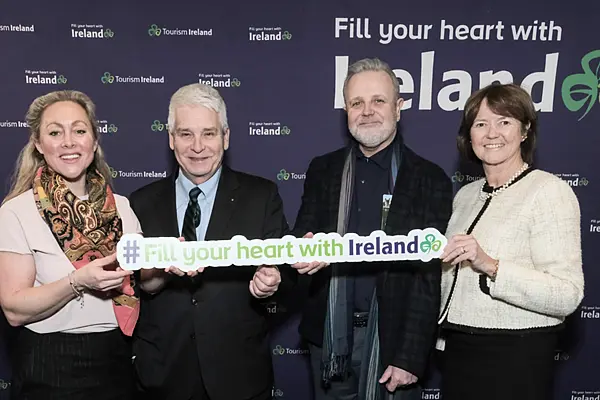A rise in international hotel arrivals amid increasing prices signals a new type of hotel guest in Ireland.
This article was originally published in the Spring 2024 issue of Hospitality Ireland Magazine, in February of 2024.
A new report by SiteMinder shows that more international hotel guests and changing economic conditions in Ireland have triggered a new era of travel for the country’s hotel industry.
The report, SiteMinder’s Hotel Booking Trends – based on more than 115 million hotel bookings – reveals that as the contribution of international arrivals in Ireland grew in 2023 (rising to 57%, from 53% in 2022 and 27% in 2021), so too did the average booking lead time. The latter was the longest globally, stretching to 54 days, to represent a 12% increase, year on year.
The changes came in spite of travellers incurring more costs for their stays in 2023. The average daily rate (ADR) of Irish hotels increased by 10%, to US$290 (€267), versus the previous year, which was comparable to the global increase of 11%. ADR peaked in August, aligned with the busiest month for the country’s hotels.
The arrival of Trip.com, a channel popular among Chinese travellers on the country’s list of the top 12 booking sources for hotels, was another key indicator of evolving hotel guests in Ireland.
SiteMinder’s chief growth officer, Trent Innes, says that the findings highlight the need for hoteliers to be dynamic, while cautioning them against anticipating the return of known travel trends.
“SiteMinder’s data shows that while travellers have regained their confidence and international travel is returning, traveller behaviours and preferences have changed,” says Innes.
“Today’s traveller is not the same traveller of years past. We know, through our data, that travellers are booking further ahead than before. We also know, through our own research, that travellers are happy to spend money beyond the cost of their room, but that increased prices are forcing them to adapt by opting for package deals, as an example. It’s therefore vital that hoteliers are dynamic in the way they do business, to ensure they keep pace with their customers and understand how every customer touchpoint is a revenue opportunity.”
Innes adds, “We have certainly entered a new era of travel, where not only are behaviours and preferences changing, but the travellers themselves. The global travel industry has long awaited the return of Chinese travellers, and it is clear from our data that they are beginning to come back, alongside those from other source markets throughout Asia, such as India, Japan and South Korea. Hotels would do well to prepare for a change in the mix of travellers arriving at their doorstep by revising their marketing strategies to reach the world’s fastest-growing travel sources and gaining intelligence on these potential customers, to maximise their revenues.”
Another key finding for the Irish hotel industry was that, with 90% of 2023 stays spanning one to two nights, Ireland played host to the shortest hotel visits in the world. The country’s cancellation rate dropped to 24% of all reservations, down from 26% the prior year.
Speaking exclusively to Hospitality Ireland, Trent Innes responded to questions about the data.
Trent, to what do you attribute the rise in international visitors?
Globally, we saw that the rise in international arrivals was spurred by the strong rebound of outbound travel from Asia, as evidenced by hotel-booking channels popular in the region rising the fastest among the year’s top 12 hotel- booking sources.
In Ireland, the contribution of international guests to total hotel arrivals more than doubled from 2021. This was driven, in part, by sustained, pent-up demand, as well as strengthened traveller confidence, as guests, on average, booked their stays almost a week sooner than in the prior year.
Do you have a breakdown of where these visitors are coming from?
Our data reveals that, in 2023, Ireland’s leading source of international visitors to hotels remained its neighbouring United Kingdom – a result that comes as no surprise. The UK was closely followed by the United States, Germany, France and Italy.
How long are they staying, on average, and has this changed?
Globally, Ireland stands out for the short stays that its hotels attract, among both domestic and international guests. In fact, 90% of hotel stays in the country in 2023 spanned only one to two nights, which was consistent with the previous year, and higher than the global average of 81%.
Are these leisure travellers, or business?
Gleaning from Ireland’s top 12 hotel-booking sources in 2023, there is a balanced mix of channels popular among both leisure and business travellers. Notably, one third of these sources cater extensively to the corporate travel market, such as Hotelbeds, GDSes – global distribution systems – WebBeds and HRS – Hotel Reservation Service. However, the balance is not only a reflection of Ireland’s appeal as both a leisure and business travel destination, but of the changing traveller. The findings from SiteMinder’s Changing Traveller Report 2023 showed that, globally, 36% of travellers intended to work during their next trip.
How can hoteliers best take advantage of the rise?
With international arrivals rising and the mix of travellers diversifying, hoteliers must understand who their guests are and where they are coming from, so they can be strategic about their distribution and revenue management strategies.
‘Dynamic’ is the name of the game today. Travellers are changing, and the landscape in which hoteliers operate is evolving even faster. Hoteliers need to keep pace, and technology is critical in this regard.
At this time of rising costs of living, ‘value for money’ has become more important than ever to travellers, and so hoteliers need the ability to price their rooms dynamically, offer package deals as part of the booking process, know how their pricing fares against other local businesses, and which booking channels are driving the most revenue by appealing to this value.
Do you see this trend continuing over the next few years?
We’re living in a new era of travel, where all established and traditional hotel- booking patterns are being superseded by fast-changing behaviours and preferences. However, the sustained growth of international travel should provide hoteliers with optimism and act as a call to action to understand the modern guest better, revisit marketing and sales strategies, and recognise that every customer touchpoint is a potential opportunity for revenue.
Our data shows that the average booking lead time in Ireland grew substantially from the prior year, for example. It surpassed the 46-day average in 2019, despite travellers incurring more costs for their stays. With this extended lead time, hoteliers now have a favourable window for sending their guests personalised upselling offers, whether they be upgrades and extras, or even in-room amenities. Not only does this extended window create room for hotels to bank more revenue, it gives them a chance to create more memorable guest experiences by connecting with their customers and making them less likely to cancel.
Was there anything in the data that surprised you?
The new era of travel is all about discovering rapidly changing trends and surprises!







